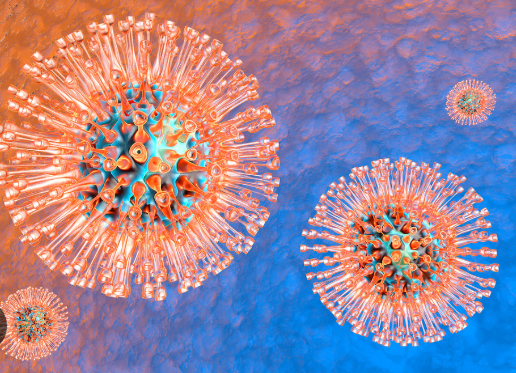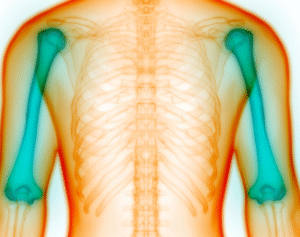Breaking Down the Storm: Understanding Attacks of Fibromyalgia and Their Impact on Daily Life
Introduction to Fibromyalgia Attacks
Fibromyalgia is a chronic health condition defined by widespread musculoskeletal pain, extreme fatigue, cognitive challenges, and a host of other physical and emotional symptoms. While the condition itself is persistent, individuals often experience what are commonly referred to as “attacks” or “flare-ups.” These episodes are intense periods when symptoms worsen dramatically, often disrupting daily functioning, work productivity, and mental stability.
Understanding what fibromyalgia attacks are, how they manifest, and what triggers them is crucial for those living with this complex condition. These attacks are unpredictable, making day-to-day life a challenge and requiring strategic planning and management.
What Are Attacks of Fibromyalgia?
A fibromyalgia attack, or flare-up, refers to a temporary but severe intensification of fibromyalgia symptoms. These periods may last for hours, days, or even weeks. The symptoms become more pronounced, interfering with basic activities like walking, concentrating, sleeping, or even speaking.
During an attack, the pain is not only more widespread but can also feel sharper, burning, or throbbing. The fatigue often becomes crushing, leading to an overwhelming sense of exhaustion that rest cannot relieve. In some cases, cognitive symptoms, often called “fibro fog,” become so intense that forming coherent thoughts or remembering simple things becomes almost impossible.
Common Symptoms Experienced During a Fibromyalgia Attack
Fibromyalgia attacks are highly individualized, but several symptoms are commonly reported during these episodes:
- Intensified widespread pain, especially in pressure-sensitive areas
- Debilitating fatigue, far beyond normal tiredness
- Heightened sensitivity to temperature, noise, and light
- Muscle stiffness, particularly after periods of inactivity
- Migraine or tension-type headaches
- Digestive disturbances such as bloating, gas, or irritable bowel syndrome
- Numbness or tingling in the limbs
- Severe sleep disturbances or insomnia
- Emotional disturbances including anxiety, depression, or irritability
- Memory lapses and concentration issues
These symptoms may appear suddenly or build up gradually, and their severity can range from mild to incapacitating.
What Triggers a Fibromyalgia Attack?
Identifying the triggers of fibromyalgia attacks is essential in preventing or minimizing their impact. Though triggers vary among individuals, some of the most commonly reported include:
- Physical or emotional stress
- Sudden weather changes, especially cold or damp conditions
- Poor or disrupted sleep
- Overexertion from physical activity or work
- Hormonal fluctuations, especially in women
- Dietary sensitivities including high sugar or processed foods
- Infections or illnesses
- Travel and changes in routine
- Environmental sensitivities such as strong odors or bright lights
Recognizing patterns and keeping a symptom diary can be instrumental in pinpointing individual triggers and avoiding future flare-ups.
The Physical and Emotional Impact of Fibromyalgia Attacks
The toll of fibromyalgia attacks goes beyond the physical symptoms. The emotional strain can be just as debilitating. The unpredictability of these episodes often leads to feelings of anxiety, helplessness, and isolation. People with fibromyalgia may start avoiding social events, work commitments, and even family responsibilities for fear of an oncoming attack.
Sleep, which is already compromised in fibromyalgia, becomes even more elusive during a flare-up. Lack of restorative sleep worsens the fatigue and cognitive dysfunction, creating a vicious cycle that’s hard to break without intervention.
How Long Do Fibromyalgia Attacks Last?
There is no standard duration for a fibromyalgia attack. Some people experience brief flare-ups lasting only a few hours, while others may endure several weeks of heightened symptoms. The severity and duration can be influenced by how quickly the individual recognizes the onset and acts to manage the flare.
Prompt rest, reduction of stress, avoidance of known triggers, and the use of symptom-relief strategies can help reduce the duration of a flare-up.
Managing and Coping with Fibromyalgia Attacks
Though fibromyalgia cannot be cured, there are effective ways to manage flare-ups and lessen their impact. Below are several strategies for managing fibromyalgia attacks:
- Rest and Recovery
Give the body time to heal by taking breaks and avoiding overexertion. - Mindfulness and Relaxation Techniques
Practices like meditation, deep-breathing exercises, or progressive muscle relaxation can help reduce stress and manage pain. - Medications and Supplements
Prescription medications for nerve pain, over-the-counter anti-inflammatory drugs, and natural supplements like magnesium and vitamin D may offer relief. - Gentle Physical Activity
While intense exercise can worsen symptoms, light stretching or walking may help reduce stiffness. - Hydration and Nutrition
Staying well-hydrated and eating a balanced, anti-inflammatory diet can help prevent symptom escalation. - Sleep Hygiene
Establishing a regular sleep routine, minimizing screen time before bed, and using calming activities can improve sleep quality. - Therapeutic Support
Counseling, support groups, and physical therapy can provide emotional and physical support.
Conclusion
Fibromyalgia attacks are intense, often debilitating episodes that significantly impact quality of life. They amplify the already-challenging symptoms of fibromyalgia, affecting the body, mind, and spirit. While there is no one-size-fits-all solution, recognizing personal triggers, employing effective coping strategies, and maintaining a supportive care plan can help reduce their frequency and intensity.
Living with fibromyalgia requires resilience, but with education and a proactive approach, individuals can manage their condition and navigate the unpredictable storms of flare-ups with greater confidence and control.
Frequently Asked Questions
1. What does a fibromyalgia attack feel like?
A fibromyalgia attack feels like a surge in chronic symptoms, including more intense pain, exhaustion, cognitive fog, and emotional distress.
2. Are fibromyalgia attacks sudden or gradual?
They can be either. Some people experience a rapid onset, while others notice a slow build-up over several days.
3. Can fibromyalgia attacks be prevented?
While not all flare-ups can be prevented, understanding and avoiding personal triggers can significantly reduce their frequency and severity.
4. Should I see a doctor during a fibromyalgia attack?
If symptoms are severe, persistent, or include new issues, it is advisable to consult a healthcare professional for further guidance.
5. Is there a difference between a fibromyalgia attack and daily symptoms?
Yes. Daily symptoms tend to be more stable, while attacks involve a marked worsening that can interfere significantly with functioning.6. How should I care for myself during a flare-up?
Rest, gentle activity, stress reduction, proper hydration, and medication as prescribed are key to managing an attack effectively.



